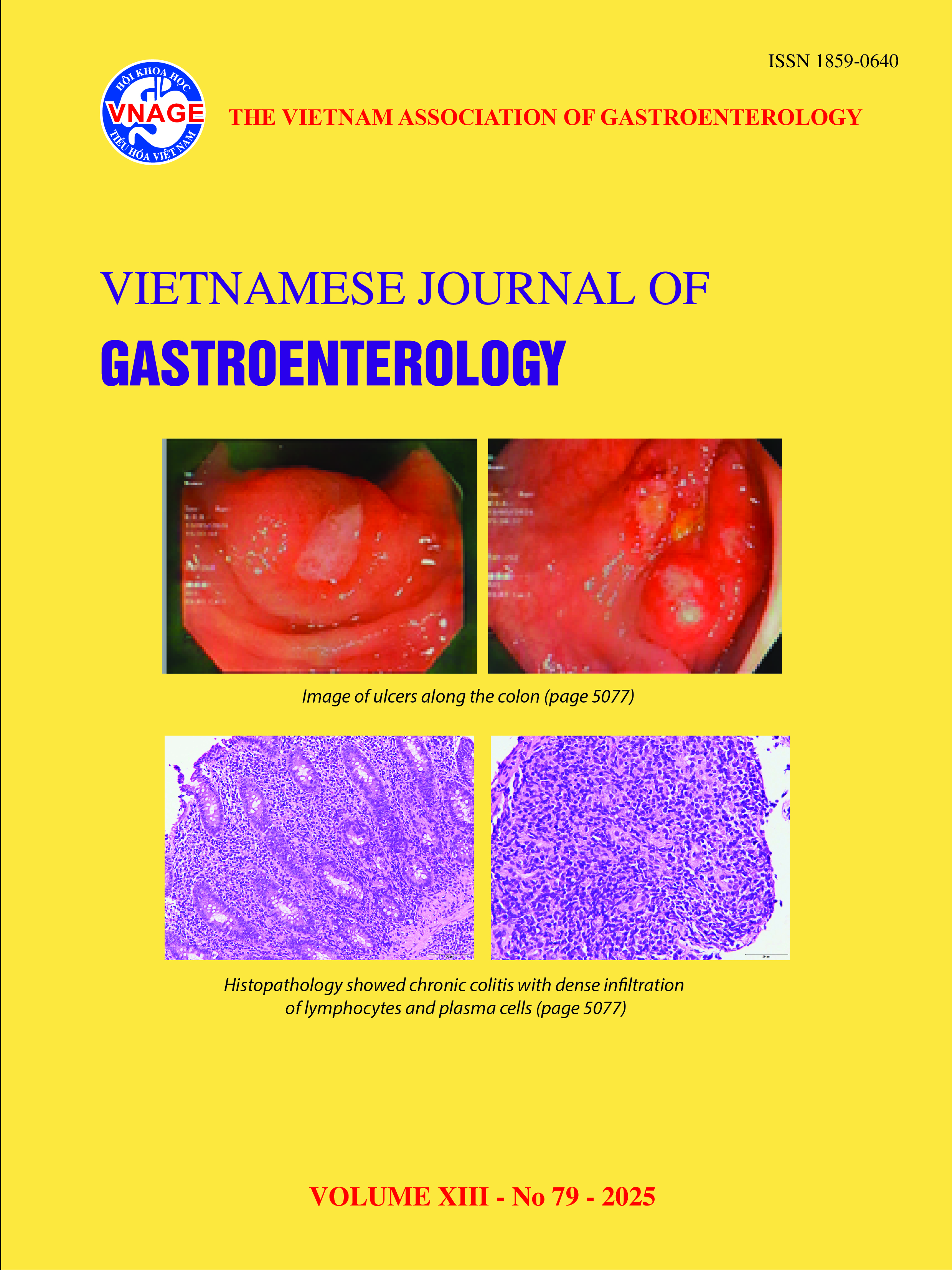Treatment outcomes of the modified sequential RA-RLT regimen in patients with chronic gastritis
DOI:
https://doi.org/10.63583/b1esns96Từ khóa:
Chronic gastritis, improved sequential regimen, Helicobacter pyloriTóm tắt
Objective: To evaluate the efficacy and safety of the improved RA-RLT sequential regimen in the treatment of chronic gastritis with Helicobacter pylori infection. Subjects and method: A descriptive cross-sectional study with a prospective intervention and follow-up was conducted on 103 patients diagnosed with chronic gastritis who tested positive for H. pylori. The patients received treatment with the improved RA-RLT sequential regimen for 10 days. Result: The study was conducted on 103 patients with chronic gastritis, with a mean age of 48.6 ± 13.2 years; 52.4% were male, and the majority resided in rural areas (62.1%). The most common clinical symptoms included epigastric pain (89.3%), bloating and belching (71.8%), nausea (41.7%), digestive disorders (26.2%), and fatigue (17.5%). The eradication rate of Helicobacter pylori with the improved RA-RLT sequential regimen was 91.3%, with no significant differences between gender and age groups. The adverse effects were mostly mild and occurred in 40.8% of patients, with the most common being bitter taste (15.5%), diarrhea (11.7%), nausea (8.7%), and headache (4.9%). The eradication rates at 4, 12, and 24 weeks were 91.3%, 92.8%, and 94.0%, respectively. Conclusion: The improved RA-RLT sequential regimen is highly effective in eradicating H. pylori, well tolerated, with minimal side effects, and is suitable for the treatment of chronic gastritis with H. pylori infection.
Tài liệu tham khảo
1. Kale-Pradhan P.B., Mihaescu A., Wilhelm S.M. (2015). Fluoroquinolone Sequential Therapy for Helicobacter pylori: A Meta-analysis. Pharmacotherapy: The Journal of Human Pharmacology and Drug Therapy, 35(8), 719–730.
2. Wu W., Yang Y., Sun G. (2012). Recent Insights into Antibiotic Resistance in Helicobacter pylori Eradication. Gastroenterol Res Pract, 2012, 723183.
3. Gatta L., Vakil N., Vaira D. et al (2013). Global eradication rates for Helicobacter pylori infection: systematic review and meta-analysis of sequential therapy. BMJ, 347, f4587.
4. Sugano K., Tack J., Kuipers E.J. et al (2015). Kyoto global consensus report on Helicobacter pylori gastritis. Gut, 64(9), 1353-1367.
5. Yang L., Liu X., Zhu J. et al (2023). Progress in traditional Chinese medicine against chronic gastritis: From chronic non-atrophic gastritis to gastric precancerous lesions. Heliyon, 9(6), e16764.
6. Gisbert J.P., Calvet X. (2011). Review article: non-bismuth quadruple (concomitant) therapy for eradication of Helicobater pylori. Aliment Pharmacol Ther, 34(6), 604-617.
7. Malfertheiner P., Megraud F., Rokkas T. et al (2022). Management of Helicobacter pylori infection: the Maastricht VI/Florence consensus report. Gut, gutjnl-2022-327745.









